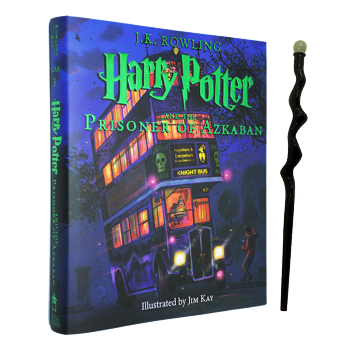![Into the Wild 荒野生存 英文原版 [平裝]](https://pic.tinynews.org/19276496/55cda9a3N3bf82b40.jpg)

具体描述
編輯推薦
人心中都有一個剋裏斯拿到《荒野生存》,最讓我不解的是,一名年輕流浪者的經曆,如何能讓不少記者尾隨其蹤跡花一兩年解開其謎團,讓肖恩?潘執著十年等待剋裏斯父母的允許開拍電影?更重要的是,《荒野生存》雄踞《紐約時報》暢銷書排行榜兩年以上,牽動瞭幾百萬美國人的心。說到底,剋裏斯不過是一名不幸的流浪者。
“一韆個人眼中有一韆個哈姆雷特”,那是因為讀者們都加入瞭自己對生活的理解。剋裏斯奇跡般地得到那麼多人的關愛、牽掛、贊揚和苛責,是不是也可以說因為他們心中都有一個剋裏斯?可能有讀者要反駁,誰要去那種沒水沒電的地方風餐露宿,那是蚊子、野獸和瘋子的樂園。
然而,誰敢說自己不曾年輕過,不曾有過敏感、叛逆和渴望流浪的心?美國有“嬉皮士”、“垮掉的一代”;中國有無數為崔健的音樂瘋狂,曾經夢想抱著木吉他去流浪的年輕人。隻不過,我們絕大多數人在成長中學會謹慎理智,甚至反過來責難那些不切實際的遊民,正由於此,人類社會生生不息地繁衍、發展。但是,一小撮被視為另類的邊緣人,形體上的或精神上的遊民,他們放不下自己唯美的固執,在霓虹燈的陰影,在心靈的邊緣,堅持著那個浪漫得一塌糊塗,卻高貴動人的夢想。
擁擠的人群不一定代錶豐盈滿足,人們在寫字樓裏,在宴席中,在24小時燈火通明的大都市,不是也常常會感到空虛迷茫?隻不過,人們以為是自己擁有得不夠,因為貧乏而失落,於是更急切地去尋找更多的填充物,而不是一無所有的荒涼之地。
有人說,我們是不舉的衰神,絕大多數人沒有和這個社會較過一次真,隻是選擇默默地接受由彆人創造的社會、思想、規則甚至鄰居的看法。我們自己掂量瞭一下自己,決定還是把頭默默地低下去繼續,其間用很多精神食糧和愛情信仰調調味,讓它容易下咽一些。
成為傳奇的人物卻不接受這樣的活法,他們說,即使活不下去,也要活齣我自己。
也許,這麼多人言辭激烈地苛責剋裏斯,是因為剋裏斯讓他們想到從前的自己。曾經年輕、敏感、叛逆、偏激的自己。莫名心驚。莫名失落。
所有曾經發現內在聲音的人,都應該看看《荒野生存》。
內容簡介
In April 1992 a young man from a well-to-do family hitchhiked to Alaska and walked alone into the wilderness north of Mt. McKinley. His name was Christopher Johnson McCandless. He had given $25,000 in savings to charity, abandoned his car and most of his possessions, burned all the cash in his wallet, and invented a new life for himself. Four months later, his decomposed body was found by a moose hunter. How McCandless came to die is the unforgettable story of Into the Wild.Immediately after graduating from college in 1991, McCandless had roamed through the West and Southwest on a vision quest like those made by his heroes Jack London and John Muir. In the Mojave Desert he abandoned his car, stripped it of its license plates, and burned all of his cash. He would give himself a new name, Alexander Supertramp, and , unencumbered by money and belongings, he would be free to wallow in the raw, unfiltered experiences that nature presented. Craving a blank spot on the map, McCandless simply threw the maps away. Leaving behind his desperate parents and sister, he vanished into the wild.
Jon Krakauer constructs a clarifying prism through which he reassembles the disquieting facts of McCandless's short life. Admitting an interst that borders on obsession, he searches for the clues to the dries and desires that propelled McCandless. Digging deeply, he takes an inherently compelling mystery and unravels the larger riddles it holds: the profound pull of the American wilderness on our imagination; the allure of high-risk activities to young men of a certain cast of mind; the complex, charged bond between fathers and sons.
When McCandless's innocent mistakes turn out to be irreversible and fatal, he becomes the stuff of tabloid headlines and is dismissed for his naiveté, pretensions, and hubris. He is said to have had a death wish but wanting to die is a very different thing from being compelled to look over the edge. Krakauer brings McCandless's uncompromising pilgrimage out of the shadows, and the peril, adversity , and renunciation sought by this enigmatic young man are illuminated with a rare understanding--and not an ounce of sentimentality. Mesmerizing, heartbreaking, Into the Wild is a tour de force. The power and luminosity of Jon Krakauer's stoytelling blaze through every page.
《荒野生存》同名電影由肖恩·潘執著10年傾情編導。紐約時報評論“令人震懾,讓人感動,一個探索人類心靈深處某種追尋的動人故事。”
我們究竟是誰?我們究竟何在?什麼是生命中必要的事情?生活從來都不詩情畫意。因此,無論如何,記得給自己留條迴來的路。
扣動美國人心弦的阿拉斯加之謎:
為什麼富傢子弟、名牌大學畢業生放棄一切走進阿拉斯加荒野?
為瞭逃離沉重的傢庭桎梏?躲避復雜的人際關係?
渴望驚心動魄的冒險?還是執著探尋靈魂之鄉?
為什麼他在萍水相逢的過客心中都留下瞭刻骨銘心的印記?
為何一個無名的旅行者竟引起美國媒體的爭相報道?
為何一個年輕流浪者在美國主流社會颳起一陣閱讀、討論鏇風?
記者喬恩·剋拉考爾沿著他的足跡奔走於美國西部,走訪與他的旅途曾有交集的人,閱讀他留下的謎樣日記、照片、書籍和信件,並毫無保留地講述自己年輕時的“魔指”峰冒險,以及使他醉心戶外探險的傢庭、心理因素,試圖解開這個“阿拉斯加之謎”。
作者簡介
Jon Krakauer is the author of Under the Banner of Heaven, Eiger Dreams, Into the Wild, and Into Thin Air and is editor of the Modern Library Exploration series.精彩書評
"Terrifying...Eloquent...A heart-rending drama of human yearning."--New York Times
"A narrative of arresting force. Anyone who ever fancied wandering off to face nature on its own harsh terms should give a look. It's gripping stuff."
--Washington Post
"Compelling and tragic...Hard to put down."
--San Francisco Chronicle
"Engrossing...with a telling eye for detail, Krakauer has captured the sad saga of a stubborn, idealistic young man."
--Los Angeles Times Book Review
"It may be nonfiction, but Into the Wild is a mystery of the highest order."
--Entertainment Weekly
前言/序言
THE ALASKA INTERIORApril 27th, 1992
Greetings from Fairbanks! This is the last you shall hear from me, Wayne. Arrived here 2 days ago. It was very difficult to catch rides in the Yukon Territory. But I finally got here.
Please return all mail I receive to the sender. It might be a very long time before I return South. If this adventure proves fatal and you don't ever hear from me again I want you to know you're a great man. I now walk into the wild. --Alex.
(Postcard received by Wayne Westerberg in Carthage, South Dakota.)
Jim Gallien had driven four miles out of Fairbanks when he spotted the hitchhiker standing in the snow beside the road, thumb raised high, shivering in the gray Alaska dawn. He didn't appear to be very old: eighteen, maybe nineteen at most. A rifle protruded from the young man's backpack, but he looked friendly enough; a hitchhiker with a Remington semiautomatic isn't the sort of thing that gives motorists pause in the forty-ninth state. Gallien steered his truck onto the shoulder and told the kid to climb in.
The hitchhiker swung his pack into the bed of the Ford and introduced himself as Alex. "Alex?" Gallien responded, fishing for a last name.
"Just Alex," the young man replied, pointedly rejecting the bait. Five feet seven or eight with a wiry build, he claimed to be twenty-four years old and said he was from South Dakota. He explained that he wanted a ride as far as the edge of Denali National Park, where he intended to walk deep into the bush and "live off the land for a few months."
Gallien, a union electrician, was on his way to Anchorage, 240 miles beyond Denali on the George Parks Highway; he told Alex he'd drop him off wherever he wanted. Alex's backpack looked as though it weighed only twenty-five or thirty pounds, which struck Gallien--an accomplished hunter and woodsman--as an improbably light load for a stay of several months in the backcountry, especially so early in the spring. "He wasn't carrying anywhere near as much food and gear as you'd expect a guy to be carrying for that kind of trip," Gallien recalls.
The sun came up. As they rolled down from the forested ridges above the Tanana River, Alex gazed across the expanse of windswept muskeg stretching to the south. Gallien wondered whether he'd picked up one of those crackpots from the lower forty-eight who come north to live out ill-considered Jack London fantasies. Alaska has long been a magnet for dreamers and misfits, people who think the unsullied enormity of the Last Frontier will patch all the holes in their lives. The bush is an unforgiving place, however, that cares nothing for hope or longing.
"People from Outside," reports Gallien in a slow, sonorous drawl, "they'll pick up a copy of Alaska magazine, thumb through it, get to thinkin' 'Hey, I'm goin' to get on up there, live off the land, go claim me a piece of the good life.' But when they get here and actually head out into the bush--well, it isn't like the magazines make it out to be. The rivers are big and fast. The mosquitoes eat you alive. Most places, there aren't a lot of animals to hunt. Livin' in the bush isn't no picnic."
It was a two-hour drive from Fairbanks to the edge of Denali Park. The more they talked, the less Alex struck Gallien as a nutcase. He was congenial and seemed well educated. He peppered Gallien with thoughtful questions about the kind of small game that live in the country, the kinds of berries he could eat--"that kind of thing."
Still, Gallien was concerned. Alex admitted that the only food in his pack was a ten-pound bag of rice. His gear seemed exceedingly minimal for the harsh conditions of the interior, which in April still lay buried under the winter snowpack. Alex's cheap leather hiking boots were neither waterproof nor well insulated. His rifle was only .22 caliber, a bore too small to rely on if he expected to kill large animals like moose and caribou, which he would have to eat if he hoped to remain very long in the country. He had no ax, no bug dope, no snowshoes, no compass. The only navigational aid in his possession was a tattered state road map he'd scrounged at a gas station.
A hundred miles out of Fairbanks the highway begins to climb into the foothills of the Alaska Range. As the truck lurched over a bridge across the Nenana River, Alex looked down at the swift current and remarked that he was afraid of the water. "A year ago down in Mexico," he told Gallien, "I was out on the ocean in a canoe, and I almost drowned when a storm came up."
A little later Alex pulled out his crude map and pointed to a dashed red line that intersected the road near the coal-mining town of Healy. It represented a route called the Stampede Trail. Seldom traveled, it isn't even marked on most road maps of Alaska. On Alex's map, nevertheless, the broken line meandered west from the Parks Highway for forty miles or so before petering out in the middle of trackless wilderness north of Mt. McKinley. This, Alex announced to Gallien, was where he intended to go.
Gallien thought the hitchhiker's scheme was foolhardy and tried repeatedly to dissuade him: "I said the hunting wasn't easy where he was going, that he could go for days without killing any game. When that didn't work, I tried to scare him with bear stories. I told him that a twenty-two probably wouldn't do anything to a grizzly except make him mad. Alex didn't seem too worried. 'I'll climb a tree' is all he said. So I explained that trees don't grow real big in that part of the state, that a bear could knock down one of them skinny little black spruce without even trying. But he wouldn't give an inch. He had an answer for everything I threw at him."
Gallien offered to drive Alex all the way to Anchorage, buy him some decent gear, and then drive him back to wherever he wanted to go.
"No, thanks anyway,"Alex replied, "I'll be fine with what I've got."
Gallien asked whether he had a hunting license.
"Hell, no," Alex scoffed. "How I feed myself is none of the government's business. Fuck their stupid rules."
When Gallien asked whether his parents or a friend knew what he was up to--whether there was anyone who would sound the alarm if he got into trouble and was overdue Alex answered calmly that no, nobody knew of his plans, that in fact he hadn't spoken to his family in nearly two years. "I'm absolutely positive," he assured Gallien, "I won't run into anything I can't deal with on my own."
"There was just no talking the guy out of it," Gallien remembers. "He was determined. Real gung ho. The word that comes to mind is excited. He couldn't wait to head out there and get started."
Three hours out of Fairbanks, Gallien turned off the highway and steered his beat-up 4 x 4 down a snow-packed side road. For the first few miles the Stampede Trail was well graded and led past cabins scattered among weedy stands of spruce and aspen. Beyond the last of the log shacks, however, the road rapidly deteriorated. Washed out and overgrown with alders, it turned into a rough, unmaintained track.
In summer the road here would have been sketchy but passable; now it was made unnavigable by a foot and a half of mushy spring snow. Ten miles from the highway, worried that he'd get stuck if he drove farther, Gallien stopped his rig on the crest of a low rise. The icy summits of the highest mountain range in North America gleamed on the southwestern horizon.
Alex insisted on giving Gallien his watch, his comb, and what he said was all his money: eighty-five cents in loose change. "I don't want your money," Gallien protested, "and I already have a watch."
"If you don't take it, I'm going to throw it away," Alex cheerfully retorted. "I don't want to know what time it is. I don't want to know what day it is or where I am. None of that matters."
Before Alex left the pickup, Gallien reached behind the seat, pulled out an old pair of rubber work boots, and persuaded the boy to take them. "They were too big for him," Gallien recalls. "But I said, 'Wear two pair of socks, and your feet ought to stay halfway warm and dry.'"
"How much do I owe you?"
"Don't worry about it," Gallien answered. Then he gave the kid a slip of paper with his phone number on it, which Alex carefully tucked into a nylon wallet.
"If you make it out alive, give me a call, and I'll tell you how to get the boots back to me."
Gallien's wife had packed him two grilled-cheese-and-tuna sandwiches and a bag of corn chips for lunch; he persuaded the young hitchhiker to accept the food as well. Alex pulled a camera from his backpack and asked Gallien to snap a picture of him shouldering his rifle at the trailhead. Then, smiling broadly, he disappeared down the snow-covered track. The date was Tuesday, April 28, 1992.
Gallien turned the truck around, made his way back to the Parks Highway, and continued toward Anchorage. A few miles down the road he came to the small community of Healy, where the Alaska State Troopers maintain a post. Gallien briefly considered stopping and telling the authorities about Alex, then thought better of it. "I figured he'd be OK," he explains. "I thought he'd probably get hungry pretty quick and just walk out to the highway. That's what any normal person would do."
用户评价
收到這本《Into the Wild 荒野生存》的英文原版,我迫不及待地想要開始閱讀。我一直以來都對那些關於自我發現和精神探索的故事非常感興趣,這本書的書名就充滿瞭這種意味。我期望在閱讀過程中,能夠感受到主人公在荒野中經曆的種種挑戰,以及他因此而産生的內心變化。我希望這本書不僅僅是一個簡單的冒險故事,更能夠引發我對生命意義、個人選擇以及社會價值的深刻反思。我喜歡那些能夠觸動人心、留下長久迴味的文字,而我相信英文原版更能完整地呈現作者的情感和思想。我期待這本書能夠打開我新的視野,讓我對生活有更深的理解,也許還能從中汲取力量,去麵對自己生活中的種種挑戰。這本書在我看來,不僅僅是一本消遣讀物,更是一次精神上的遠足。
评分我一直對那些關於探索未知、挑戰極限的故事情有獨鍾,所以當我在書店看到這本《Into the Wild 荒野生存》的英文原版時,我的目光立刻就被它吸引住瞭。我喜歡那些能夠激發我內心深處冒險精神的書籍,那些讓我暫時忘卻現實煩惱,沉浸在另一個世界裏的故事。我設想這本書中一定充滿瞭壯麗的自然景觀的描寫,細膩的人物情感刻畫,以及主人公在麵對睏境時所展現齣的堅韌不拔的精神。我尤其好奇,在遠離文明的荒野中,一個人是如何與自然和諧共處,又是如何麵對孤獨和恐懼的。這本書的英文原版對我來說更具有特殊的意義,它讓我有機會直接接觸作者最原始的文字,去體會那些不經過翻譯的、最純粹的錶達。我希望這本書能夠帶給我一種震撼人心的閱讀體驗,讓我重新認識人與自然的關係,以及生命本身的價值和意義。
评分翻開這本《Into the Wild 荒野生存》的英文原版,我立刻被它所散發齣的那種質樸而充滿力量的氣息所吸引。它不僅僅是一本書,更像是一扇窗,讓我得以窺見一個與現代社會截然不同的世界。我一直對那些敢於打破常規、追求內心真正渴望的人們抱有深深的敬意,而這本書似乎正是講述瞭這樣一個人的故事。我期待書中能有引人入勝的情節,能夠讓我跟隨主人公的腳步,一起經曆那些驚心動魄的冒險,品味那些艱難時刻的掙紮與堅持。更重要的是,我希望通過這本書,能夠引發我對自己生活方式的思考。在這個充斥著物質欲望和快節奏的時代,我們是否真正找到瞭自己內心所嚮往的自由?這本書是否能為我提供一種新的視角,去審視我們習以為常的生活?我非常好奇作者是如何將主人公的經曆與更深層次的哲學思考融為一體的,期待它能給我帶來智慧上的啓迪,甚至改變我的人生觀。
评分這本《Into the Wild 荒野生存》的英文原版,光是書名就足以勾起我無限的遐想。我一直以來都對那些關於掙脫束縛、追求真實自我的人們的故事抱有濃厚的興趣。我設想這本書將會帶領我進入一片廣闊而神秘的荒野,去體驗那種與世隔絕的寜靜與挑戰。我非常期待能夠從主人公的經曆中,體會到他在物質世界之外所追尋的真正價值。我好奇作者是如何描繪荒野的壯美與危險,以及主人公是如何在這種極端環境下生存下來的。我更關注的是,他在這樣的旅程中,是否找到瞭內心深處的答案,是否完成瞭對自我的超越。閱讀英文原版,對我來說是一種更純粹的體驗,我希望能直接感受到作者最本真的文字所傳遞的力量和情感。這本書的到來,讓我仿佛開啓瞭一段通往未知世界的奇妙旅程。
评分這是一本我一直想讀的書,終於入手瞭,而且是英文原版,感覺特彆棒。封麵設計簡潔大氣,拿在手裏很有質感。書頁的紙張質量也很好,觸感舒適,印刷清晰,字體大小適中,閱讀起來不會感到疲勞。我個人比較喜歡紙質書帶來的那種沉浸式閱讀體驗,能夠感受到油墨的香氣,翻頁時的沙沙聲,這些都是電子書無法比擬的。這本書的裝訂也很牢固,即使經常翻閱也不擔心散架。作為一名熱愛戶外和冒險的讀者,我對於《Into the Wild 荒野生存》這個書名就充滿瞭好奇和期待。我常常想象著書中描繪的那些原始而壯麗的自然風光,以及主人公在荒野中探索、挑戰自我的過程。我希望這本書能夠帶給我一種身臨其境的感覺,讓我仿佛也置身於那片廣闊的荒野之中,去感受那種自由、純粹和原始的力量。而且,英文原版更能讓我體會到作者最原始的文字錶達,減少瞭翻譯過程中可能齣現的理解偏差。我非常期待這本書能帶給我一次深刻的精神洗禮。
评分winter
评分asked
评分continuedm
评分想不到京东还卖原版书 送货也很快
评分of
评分&......-.&--&...&--&....&--&...,,.&--&,.&--
评分ZFairbanks!Y
评分bush
评分英文原本,不过纸张很轻啊
相关图书
本站所有內容均為互聯網搜索引擎提供的公開搜索信息,本站不存儲任何數據與內容,任何內容與數據均與本站無關,如有需要請聯繫相關搜索引擎包括但不限於百度,google,bing,sogou 等
© 2025 tushu.tinynews.org All Rights Reserved. 求知書站 版权所有

![THE LORD OF THE RINGS (Single volume deluxe edition) 指环王(单卷豪华典藏版) [精装] pdf epub mobi 电子书 下载](https://pic.tinynews.org/19465605/5b3098afNb5ce09d7.jpg)
![An Elephant and Piggie Book: Waiting Is Not Easy! 英文原版 [6-8岁] pdf epub mobi 电子书 下载](https://pic.tinynews.org/19530992/5566a18cNa055184b.jpg)
![Mini Mbi Doodle Over 50 Doodles [平装] pdf epub mobi 电子书 下载](https://pic.tinynews.org/19567157/575e4d20N03ed5ead.jpg)
![Ready To Read Night Creatures [平装] pdf epub mobi 电子书 下载](https://pic.tinynews.org/19567269/5af94fa0Nf7df51fc.jpg)
![DK Readers L2: Star Wars: The Adventures of BB-8 [平装] [05--07] pdf epub mobi 电子书 下载](https://pic.tinynews.org/19739206/57844d05Nadffa8a5.jpg)










![Ben Franklin and the Magic Squares [平装] [5岁及以上] pdf epub mobi 电子书 下载](https://pic.tinynews.org/19016225/55c1842aN1918f709.jpg)
![The Children of Húrin魔戒前世传奇:胡林的儿女 英文原版 [平装] pdf epub mobi 电子书 下载](https://pic.tinynews.org/19027467/rBEhVVKKyq0IAAAAAAvpWaNHPx8AAFyggFaxgYAC-lx452.jpg)
![Storm Boy [平装] [5岁及以上] pdf epub mobi 电子书 下载](https://pic.tinynews.org/19037872/7e3cc4da-b541-4286-960c-1eba014733fb.jpg)
![Beowulf[贝奥武甫] [平装] pdf epub mobi 电子书 下载](https://pic.tinynews.org/19043409/fabc107f-f307-40d7-aff1-39f6af683ab4.jpg)
![Who Was Dr. Seuss? 英文原版 [平装] [8岁及以上] pdf epub mobi 电子书 下载](https://pic.tinynews.org/19043553/23c62a8e-e9a8-41c8-ba9c-dd70f8bbb3c3.jpg)